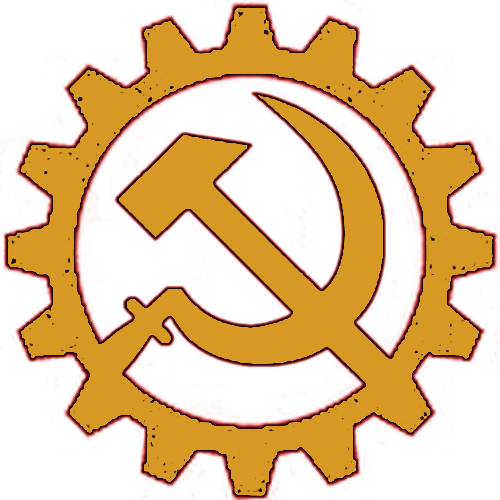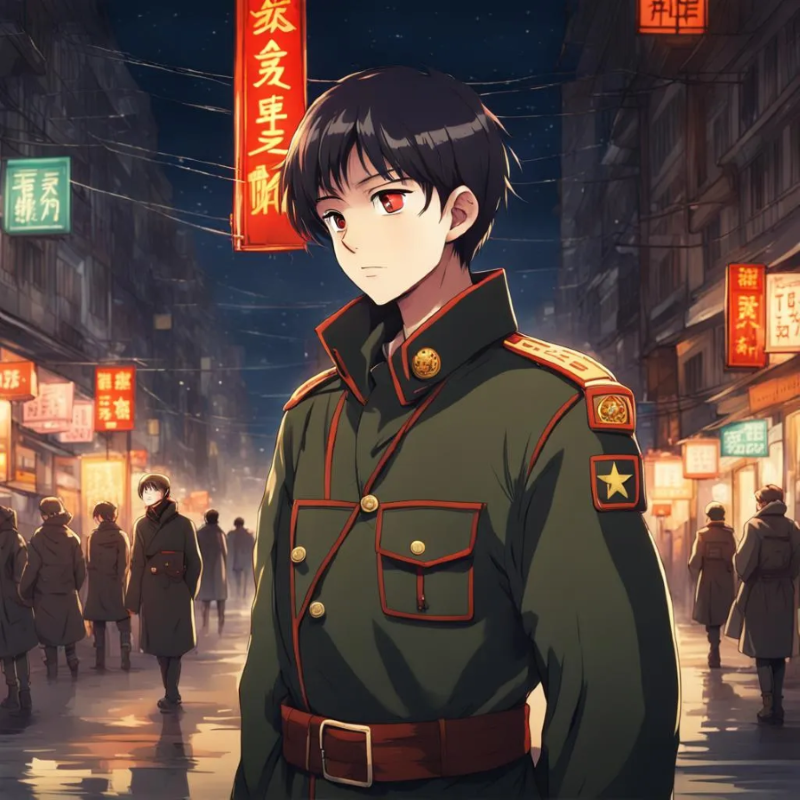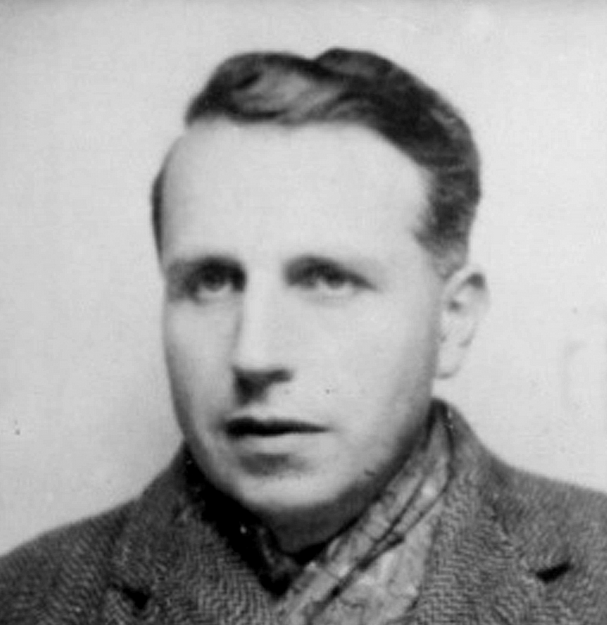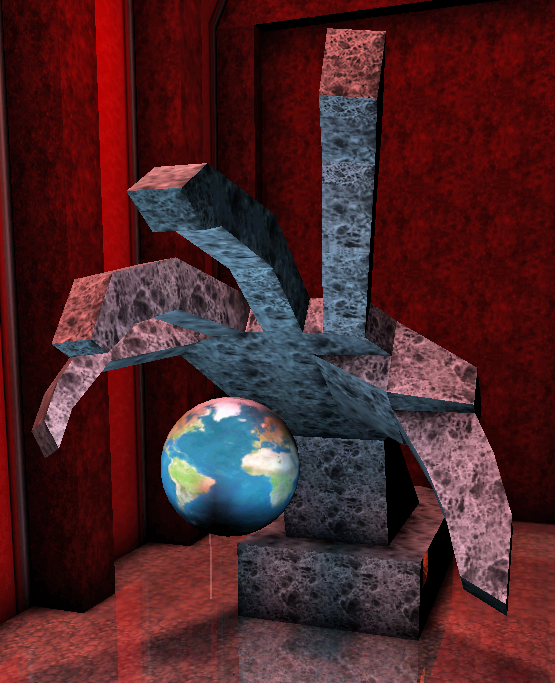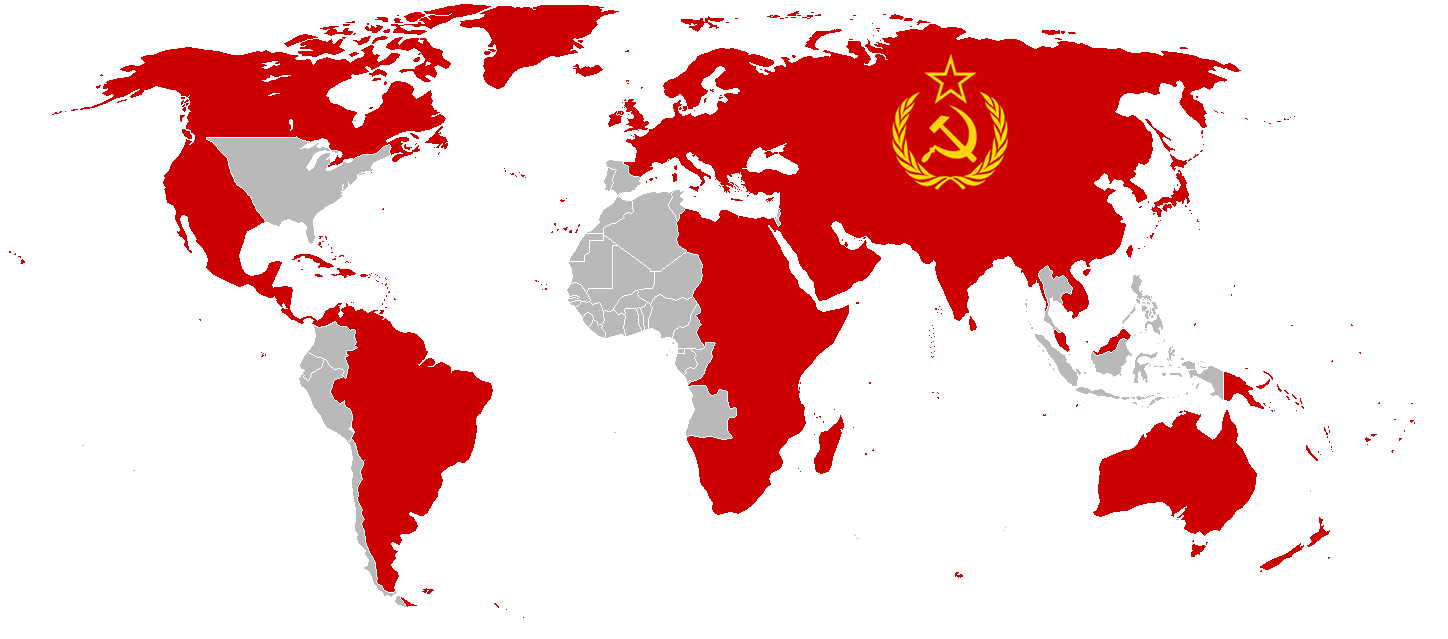
Stasi also forced you to do this
Knowing
 cultists, the thought of women enjoying sex outside of transactional obligations is intimidating to them and makes them uneasy.
cultists, the thought of women enjoying sex outside of transactional obligations is intimidating to them and makes them uneasy.The feminist part of our party (we’re all feminist, just this part is run by women focussing on women specifically) is focussing on sex under socialism now and it gets some people’s panties in a twist for sure.
It’s an unspoken part of reactionary thinking, but I think it really is common for reactionary cishet men to genuinely be afraid of women that enjoy sex.
are they afraid of making a woman happy?
Control thing. A woman knowing what she wants or a woman enjoying multiple sexual partners in life is not seen as submissive to the man enough. In their eyes, women need to serve, not have control over their own life and desires.
That’s weird AF and I’ve never even considered that as a point of view before.
it’s a control thing
They were also consistently ahead of the “BRD” regarding LGBT rights. The reason gay sex was finally completely legalised in all of Germany was that it would be bad press for the “BRD” regime to take away rights from east German LGBT people when they made a new criminal code to go with the annexation of the GDR.
Literally clicked into this thread to say, ‘the world’s largest prison but the greatest sex on earth and a dope flag.’

well they weren’t forcing people to do that and if they were it would be weird
Yes thats the point, it was sarcasm
“Communism bad because no oranges and bananas!”

man, screw bananas. if we can’t have bananas without absolutely screwing over Guatemala or Colombia or whoever, we just shouldn’t have them.
Unless I’m missing something, I don’t see why there has to be a dichotomy. In a communist world, no reason we couldn’t fairly compensate workers and manage the environment for growing bananas.
That’s what the bananas want you to think. But they’re working with the dolphins and elephants to bring us all down.
So wouldn’t it be better to eat them then? lmao
We’re left with no other choice!
Or start a local greenhouse to grow communal bananas.
shit fruit anyway, fuck exploitation sugar penises give me blueberries all day
Or you can combine bananas and blueberries to create penis.
That’s literally the pop-history definition here why the gdr failed because of muh bananas, jeans and coffee.
Bananas have a history of dividing and brutalising the working class everywhere:
your link is breaking the website
Which one?
the 2nd one
Oh, because it extends past the screen? Idk why it does that.
How long does something have to exist before it’s not considered a failure? Or is everything a failure and always was if it collapsed eventually?
Only socialism. Anything else isn’t.
It’s the history written by the labor aristocrats and petite bourgeoisie who thought they’d make out better under capitalism than socialism. It ignores the many millions of working class individuals who suffered and died and who would gladly take security and safety over fucking oranges. But we never hear their stories in the west. We only hear from businessmen, journalists, academics etc who decry “no oranges” and ignore the suffering of the masses.
i cant with this people, they are the real spoiled ones taking everything they got in socialist states for granted and complain how hard they had it: “uh it was so hard, we did not have oranges? Can you believe that??? how can a society possibly function without oranges, literally 1984” I give you the choice:
A: live in a society where human rights like housing, food and clothing are treated as such and the vast majority of peoples needs are met (no oranges)
or
B: live in a society where you need to pay for your human rights and where only the rich can carefree finance their lives without sinking in unpayable debt while homeless people roam the streets and get beaten by the police for being poor (with oranges)
one of the great baffling issues of the later soviet union was how little people appreciated things like safety nets, housing, security in old age. And how much people would really like the new phone
The section in Blackshirts and Reds where he details what it was like for people in former Soviet countries when they realized they had been duped by capitalist propaganda and lost all those things they took for granted was really fucking sad
well the fall of the soviet union was really sad
Hot take: I agree
i mean you had all of capitalism pumping out propaganda for decades.
I’ve got the second one now and I still can’t afford fresh oranges usually smh
Apparently the “2/3 society” was a hotly discussed topic in the late GDR, because liberals went that “if only 2/3 of the society lives well at the expense of getting everything to run well, then it’s worth pursuing.”
They got what they wanted.
A nationalistic “the state was supposed to take care of me, but I am unhappy. This is the lazy people’s fault” was very popular in the 80s - east AND west.
Not to mention you will literally have oranges in choice A after the capitalist hegemony is defeated
…waited 10–12 years for a car and it wasn’t cheap…
Meanwhile, in capitalism, cars are so cheap that so many car ‘owners’ get into a debt that lasts longer than the car. Some of them even find out that after weeks or months of payments, their credit application can be refused and the car can still be taken off them.
Yeah that part confused the hell out of me. Cars over here can cost more than a small house.
Hey speaking of apartments, this bozo leaves out what happened to GDR citizens immediately after reunification. Anyone in the FRG could make a claim on property in the East that was “taken” from them or their ancestors in the process of Germany being divided. At one point, over half of all residential dwellings in the East were claimed by leeches in the West. Even though a lot of claims didn’t end in evictions, so many GDR citizens had to live under the threat of being made homeless (and many were).
You had to wait for a car but it’s not like in the US where a car is a mandatory (and incredibly expensive) requirement to live. They had public transport. And part of the reason they had to wait so long (and also why bananas et al were hard to come by) is that the capitalist world tried to strangle the economies of the Eastern Bloc as much as possible.
Also, the Stasi didn’t come after you just for complaining about the government. Lots of people complained. They came after you if they suspected you were on CIA or BRD payroll, or were a capitalist wrecker, or a fash, etc. Good faith complaints were fine. The book I cite in the source below has an opinion poll that was made shortly after reunification. Former GDR citizens responded to what they liked the least about life in the GDR, and the Stasi were pretty low on the list. Travel limitations were clearly #1 IIRC, but that can’t be blamed entirely on the GDR as the capitalist west also placed restrictions on the travel of GDR citizens.
Source: Stasi State or Socialist Paradise. Haven’t read any Victor Grossman but he’s pretty great on this subject, too.
-
The process also happened in Poland. I even have a distant, now deceased relative that made big bucks on landlordism in the 90s. Lots of stuff about old aristocrats coming over and getting “their” land back, the church, etc. Anecdotal evidence and all, but both my parents and grandparents claim that homelessness only started showing up around the time of Balcerowicz’s market reforms, roughly at the same time the unemployment offices were created.
-
Public transportation was overcrowded, but it was very well built up even in smaller towns. Besides, the wait for the car is a luxury that imperial citizens of the west take for granted, as well as tropical fruit (a German lib classic). Sure, you had Bananas, and they came from a plantation in Guatemala where pro-American militaries were killing guerrilleros in fights over land in an extremely poor countryside. For the Eastern Bloc, where could they even get those? Cuba and various civil-war ridden republics in Africa. Gee, I wonder why there was so little tropical agrarian produce there - even ignoring the environmental cost.
-
Also the influence of censorship, authoritarianism, etc. is greatly overstated. Yes, the secret police etc. were overzealous (insert Michael Parenti talking about Nicaragua, 1990) but western music was freely available on the radio, contact with the west was allowed - even in stuff like shortwave radio communications etc., western goods were advertised freely (even including a competition to win these computers). Alas, the already wealthier people were dreaming of Paris (also paraphrasing Parenti) - the “we want FREEEEEDOM” was basically a constant in all media of that time (at least in Poland), and it almost always was expressed with “They’re telling us what to do, this is 1984”, a juvenile yet reactionary and incredibly popular position.
Victor Grossman
I actually saw him IRL once. I didn’t talk to him since he was busy talking to someone else and frankly I don’t know what about.
A YouTube link was detected in your comment. Here are links to the same video on Invidious, which is a YouTube frontend that protects your privacy:
-
You had to wait for a car but it’s not like in the US where a car is a mandatory (and incredibly expensive) requirement to live
In capitalist Singapore right now there is a $10,000 tax on owning a car and not many people do for this reason (on the grounds that Singapore’s infrastructure couldn’t work if it had to accomodate everyone in the city having a car)
That seems cool and good if people can work without a car anyway
Yeah from what the guy was telling me they have pretty extensive public transport. Land there is just too expensive to waste on car parks
But they have some of the most exceptional public transportation I have ever seen and I have been all over the world. That’s a completely reasonable tax as you really don’t need a car there and is a small city state.
Keep in mind, about that line where he says they made DDR the largest prison on Earth, just to keep in perspective: the USA, since 1970, has quintupled its incarcerated population, currently making up about 1/5 of the world’s prison population.
Not to mention the Indian residential fake schools from 1859s to 1998 that imprisoned all aboriginal first nation children and where all the brutal practices of Nazi Holocaust originated. They is also the forced imprisonment of indigenous people in Western European diaspora countries in federal reserves where the European immigrant dump all their toxic chemical wastes under the threat of land confiscation, violation of rent correcting rights, and confiscation of reparation for 150 years of child enslavement, unethical experimentations, and massacre in fake schools for aboriginals who tried to fled imprisonment for survival.
Guessing by the pfp this guy was in high school when DDR was annexed. Not quite as absurd as the 25 year old who has “lived experience of the horrors of communism” in the eastern bloc, but still not the full picture.
It’s weird my mother and her siblings all lived in the GDR. The GDR was disbanded when they were in their early to late twenties. My mother who was the oldest sibling has quite fond memories of the GDR (even though she was annoyed at some aspects so much that she considered putting forth an exit application. My uncles who where in their early twenties when the GDR fell don’t think that way. They have adopted the Soviet Union bad, America good mindset.
I think in the former socialist societies there was this lack of abundance of consumer goods that annoyed the middle class. I mean yeah you can have have social securities but without having an abundance of goods and snacks 😜 , it’s kinda boring. Take for example in China, there is abundance of consumer goods, products and snacks…
Ohh definitely. While there where good reasons for the high focus on heavy industry, the lack of consumer goods was a reason for the fall of the GDR.
Egon Krenz, the last leader of the GDR, has gone on record saying he admires China’s model, and that adopting reforms modeled after Deng Xiaoping’s would have saved the country.
https://www.chinadaily.com.cn/a/201910/10/WS5d9e8ceda310cf3e3556f9c6.html
https://www.politico.eu/article/last-east-german-egon-krenz-communism-berlin-wall-anniversary/
There’s time for a revival yet.
Circuses and peanuts, the people want their entrainment and goodies.
A lot of men profited more from the fall of the wall, than women did. Also there was a lot of propaganda targeted towards younger men by fascists.
I work very closely with two people from the DDR who were in uni when it was annexed. I don’t think I’ve heard them say a good word about the east in the three years I’ve known them. Even normal everyday things that we also deal with in the capitalist west are said in a tone or phrasing that implies the east was a particularly bad place. The company also has factories in the former east and I regularly hear things that have totally banal explanations but which are presented as DDR was a horrendous oppressive dictatorship. Meanwhile the one guy praises the business acumen of robber barons like Musk and Bezos constantly.
I lived in West Bengal (India ) where Communist party ruled from 1977-2011 non stop , I grew up there and did my Engineering . As it is a federal state it was not socialist at all but the civic governance and policies were definitely far better than now. I had good repo with old commie people who persuaded people to vote (vote for any party for democracy) and whatnot. But if you hear from people who were born in post 90s you will nothing hear good about the government , here it is partly because liberal MSM always hated CPIM government and partly because CPIM disenfranchised clan type influence in the society . Nowadays , it is the worst lumpen government ruling my state but people won’t say much about it .
Emilia-Romagna is similar. Probably the best place to live in Italy, ruled by the Communist Party 1970-1991 (and earlier + by the socdem successor parties since), with a strong focus on cooperative businesses. In some areas, the PCI got even more than 65% of the vote, such as in rural Modena province. It’s also the origin of stuff like Communist themed wine etc.
The socdems are still in power, just barely, while the overall situation in the country has spreading racism, nationalism, etc. and the government basically stopped every ambitious project of the PCI since it dissolved in 1991.
The youth don’t even know that the party ruling the region had a hammer and sickle in the logo as late as 1998 and they’ve absorbed the Berlusconi-led push to demonize communism and blame every problem in the country on it - facilitated by the global shifts of the blackest reaction era.
deleted by creator
No it was not. A Lada was basically unaffordable, most people owned Trabants and Skodas, Wartburg etc. You had to wait at least 3-4 years (in the early days of the GDR), and some colors were sparce, so it could be that a random car would be assigned to you, regardless of what you filled in on the formular. You also still had to wait for other cars from the socialist foreign countries. A used car market did not exist, but if you had good connections you could transfer the waiting list from another person to you, if they wanted. (sry for bad english)
Nothing wrong with your English.
Did people care about the colour thing? Almost everyone I know can only afford second hand cars, which means the colour is less important than the engine history, etc. Then again, most cars only come ina shade of black, white, grey, blue, and red. So much for choice under capitalism.
I did not live during the GDR, but from what I have heard, people made do. I personally dont find it bad, it is way more resource friendly. If you are conditioned to the illusion of choice in a capitalist system, this will sound bad to many, even if it isnt. A car is a car. A means of transportation. Who cares if it is green or red.
btw i have my knowledge of the gdr’s history mostly from people that grew up there, that’s how i first noticed how the portrayal in the history books is not accurate to say the least
I would reckon that part of that picture also was that socialist city planning meant that people had less need for a car than in the west. If you can walk, bike or take a bus anywhere you need to go then having to wait for a car is less of a nuisance than if you live in a city designed by car rains.
The wall was only in Berlin, not the whole country like this guy suggests
Yeah, reading it made me believe that the wall split the entirety of Germany in half.
I was in high school before I realized (my father, an historian, told me) that the wall was only in Berlin. Every textbook I’d read up until that point implied it was all across Germany.
US textbooks intentionally conflate the Berlin Wall with the “Iron Curtain”.
Every time I see the term “Iron Curtain” I can’t help visualizing an actual metal curtain lol
It’s either that, or the name of a really bad metal band from the 80s
They draw it as an actual graphic on a map of Europe lmao
deleted by creator
Bananas in the GDR were from Cuba lol
In Poland the 1968’ generation of young anticommunists who came out of bureocratic inteligentsia and later became mainstay of liberalism and one of the main actors in destruction of socialism was called “Banana Youth”.
terminal car-brained loser
The DDR was German, unlike Hitler’s Reich and unlike modern Germany, which is a colony of the United States. Also unlike Ukraine, which is similarly a colony.
German, unlike Hitler’s Reich

Third Reich was an attempt to remake Germany in the image of the British Empire
could you expand on this further, please?
German Rule in Russia, 1941–1945:
Hitler continued, ‘if we speak of new lands, we are bound to think first of Russia and her border states’.2
His favourite analogy in this connection was a comparison of the future German East with British India.3 To him, India provided an object lesson of colonial exploitation and Machiavellian virtuosity; he used it to buttress his conviction that the population of ‘Germany’s India’ — the Soviet Union — was likewise no more than ‘white slaves’ destined to serve the master race. Characteristic of his landlocked outlook, he proclaimed that Germany’s primary colonies were to be found not overseas but in Russia.4 Along with its manpower, the resources of the East were to assure the material well‐being of the German people.
Colonial crossovers: Nazi Germany and its entanglements with other empires:
The British empire remained a crucial point of reference and the German press continued to broadly cover India and Britain’s other colonial possessions.37 Yet the ways in which the [Fascists] referred to it have to be scrutinized. While Hitler, among others, admired the size and grandeur of British overseas possessions, the common notion that the Germans took colonial lessons from the British appears flawed. References to British rule in India are few and far between in planning documents for the settlement of Africa and eastern Europe.38
Perhaps most importantly, British colonialism was seen as a venture from the past. As Hitler explained to his inner circle in August 1941, shortly after the Wehrmacht had invaded the Soviet Union, ‘What India was for England, the territories of Russia will be for us.’39 This means that the [Axis] dictator clearly saw Germany as the rightful heir of the British empire — an empire that he wanted to surpass.
Hitler’s Empire: How the Nazis Ruled Europe, pg. 581:
Hitler would have much preferred to have Britain instead of Japan as his partner in Asia. As a colonial power, the British had few greater admirers than the Führer and he often emphasized the harmony of their and German interests. ‘If today the globe has an English world empire,’ he had written in 1928, ‘then for the time being there is also no Volk which, on the grounds of its overall governing qualities as well as its political clear‐headedness, would be more fitted for it . . . There is no reason why England’s enmity against Germany should last forever.’11
His admiration had been shared by others in Germany before him. The mighty British empire had long set the bar for German imperialists, and their view of the causes of its rise to world power was basically the one articulated by many historians today.
(Emphasis added in all cases.)
hehe… fuck… even fash wanna start a struggle session over bananas.
Horseshoe theory, confirmed.
As a liberal, I’m Joe Biden and I approve this message.
we have country a normal human being shouldn’t be forced to live in at home



